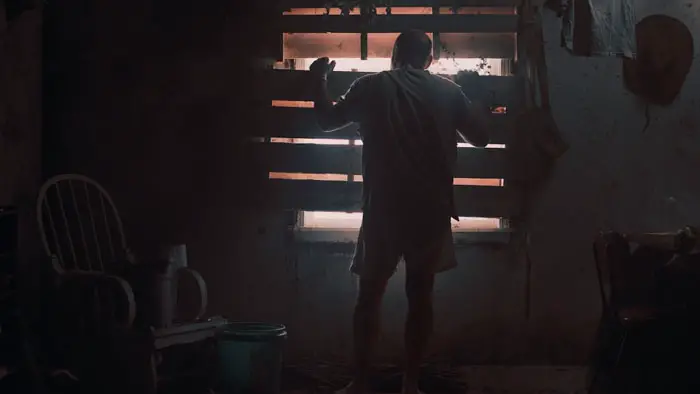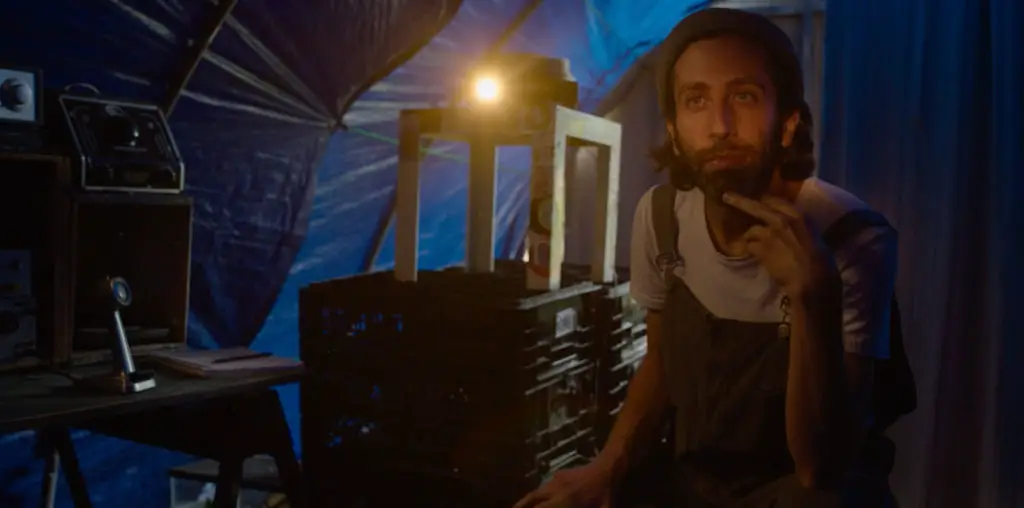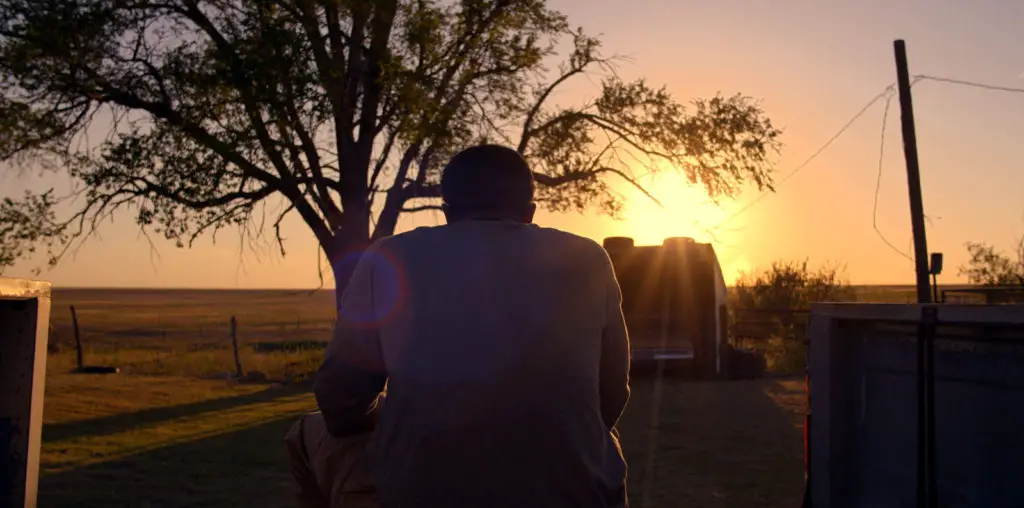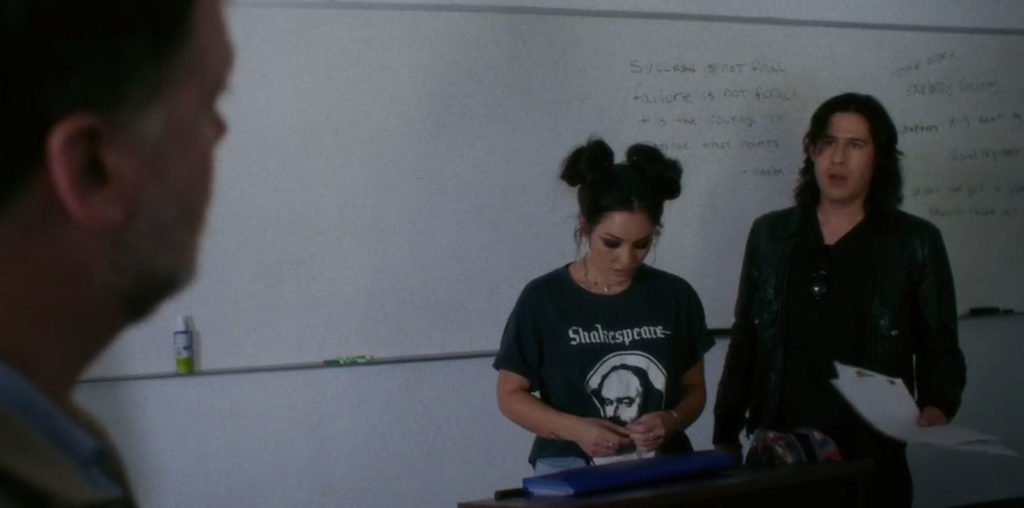
Director Georg Koszulinski’s experimental film Red Earth takes viewers several hundred years into the future. In the year 2492, Mars has been colonized, and the first results of terraforming are beginning to emerge. While Earth had been hell-bent on self-destruction for centuries, a war between Earth and Mars finished the job, rendering our home planet into a blasted, inhospitable wasteland. The conflict began when it became clear that Martian planetary ethics were evolving to be more mindful of the environment. In contrast, Earth’s conviction was that Martian settlers were there for no reason other than exploiting Martian resources and supporting the home planet.
The story spans three generations with interwoven first-person narratives of a single-family participating in the Martian Colonization Project. The eldest is activist Earth scientist Telos (Mark Evans), who gets his daughter Kasei (Christina Leidel) onto a colony ship. She settles on Mars and becomes a revolutionary in the rebellion against Earth. In turn, her son Thomas (Matt Devine) is one of the first Martians to return and take stock of the war damage on Earth. There’s another character off-screen, Ursa Harriot, a historian and scribe who is quoted in text cards from a fictional history of the rebellion called “Tractatus Mars.”
The thing about experimental film is that, by definition, the style is going to defy normal expectations of film structure. It’s important to go in knowing that and not be too put off by choices like a lack of script/dialogue, a non-linear narrative, an unusual visual presentation, or a soundtrack designed to evoke anxiety. The cinematography is primarily darkened, reddish landscapes, shots of the faces of the actors, and futuristic sequences of images distorted by digital noise. Red Earth employs all of these variations on normal cinema themes.

“…rendering our home planet into a blasted, inhospitable wasteland…”
For this film, also, a viewer needs to be comfortable with anti-capitalist, aggressively pro-environmental views. These positions play well in this context, taking our current apathy toward global warming and global wealth gap disparities to their logical conclusions over time. Given that we may well achieve the ability to travel to Mars in the next century or so, it’s not much of a reach to suggest that Mars colonists might not want to become the new world coal miners for a corrupt, fading Earth hegemony. The website supporting Red Earth mentions that it takes place in the “late Anthropocene” era. That’s another kind of final warning to us here on the (for now) blue planet… “Anthropocene” is a way to describe the time during which humans have had sufficient technology to inflict a substantial impact on the planet. It’s also a way to suggest our time will one day pass… as the defining characteristic of a geological age is that it ends at some point.
Red Earth is a jarring film experience, flouting narrative and structure rules, as well as breaking the “show, don’t tell” rule by having most of the salient information conveyed in narrated voice-overs and in the Tractatus Mars text excerpts displayed on the screen. There’s little to no action, no interaction, and a lot of speechifying. In the context of the film as a language, this one needs more verbs.
That said, it’s worth taking a spin on Red Earth if you think of it as a meditation on the life of our planet. It’s a parable about what could happen to us if we don’t turn aside from the industrial greed that’s rapidly moving our ecosystem toward being uninhabitable. The irony in the backlash coming from Mars is that the way we’ll get there is going to be based on that same capitalist push for more for the rich and less for everyone else. What if your workers do, finally, seize the means of production and then turn your home planet into a hostile desert to stop you from ruining theirs?
For more screening information, visit the Red Earth official website.

"…Mars has been colonized and the first results of terraforming are beginning to emerge"


